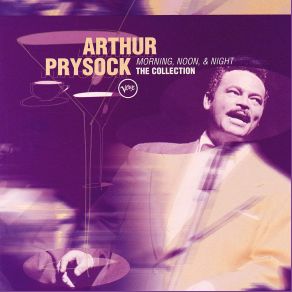Morning Noon, & Night - The Collection
Download links and information about Morning Noon, & Night - The Collection by Arthur Prysock. This album was released in 1998 and it belongs to Jazz, Vocal Jazz, Pop, Classical genres. It contains 16 tracks with total duration of 45:15 minutes.

|
|
|---|---|
| Artist: | Arthur Prysock |
| Release date: | 1998 |
| Genre: | Jazz, Vocal Jazz, Pop, Classical |
| Tracks: | 16 |
| Duration: | 45:15 |
| Buy it NOW at: | |
| Buy on iTunes $9.99 | |
| Buy on iTunes | |
Tracks
[Edit]| No. | Title | Length |
|---|---|---|
| 1. | Take Care of Yourself | 2:51 |
| 2. | Show Me How to Mambo | 2:30 |
| 3. | Morning, Noon, and Night | 2:41 |
| 4. | Woke Up This Morning | 2:57 |
| 5. | Blue Velvet | 2:57 |
| 6. | You Are Too Beautiful | 2:32 |
| 7. | April Showers | 2:20 |
| 8. | What's New? | 2:29 |
| 9. | They All Say I'm the Biggest Fool | 3:38 |
| 10. | September in the Rain | 2:34 |
| 11. | Gone Again (featuring Count Basie) | 3:10 |
| 12. | Autumn in New York | 3:05 |
| 13. | Jet | 2:44 |
| 14. | In the Still of the Night | 2:54 |
| 15. | A Cottage for Sale | 3:23 |
| 16. | Autumn Leaves | 2:30 |
Details
[Edit]A member in good standing of those deep-throated baritones who plied their trade in the 1950s and beyond, this album compiles work that Arthur Prysock did for the Old Town, Verve, and Mercury labels. Along with Johnny Hartman, Al Hibbler, and Billy Eckstine to whom's voice Prysock's bears a striking resemblance, Prysock was one of those black crooners who reached a level of popularity among the lovers of traditional pop and standard material. Prysock also had some success with rhythm & blues, especially with "I Didn't Sleep a Wink Last Night." Morning, Noon, and Night compiles more traditional material recorded by the South Carolina native. The one R&B number is a funky B.B. King- penned "Woke up This Morning" featuring the tenor sax of Prysock's brother Wilbert "Red" Prysock. This cut is one of the highlights of the album.
As for the remaining tracks, with a couple of notable exceptions, Prysock is forced to compete with a number of large, string-filled orchestras, mercifully unidentified, trying to project his voice beyond the over-arranged, syrupy orchestrations. There also seems to have been a predilection for injecting Latin rhythms, whether it made musical sense or not. "Jet" has such a beat combined with strings, harp, organ, and solo sax almost drowning out Prysock, not an easy task. There's more Latin on "Show Me How to Mambo" with a clearly dubbed vocal over a steaming mambo band reminiscent of some of Machito's work. Some of the arrangers responsible for this mish-mash are identified, like Don Sebesky who never met a string section he didn't over-orchestrate. Luckily, there are some other redeeming tracks on this CD, like a blues-laden "Blue Velvet" with excellent support from organ and muted trumpet. Prysock is given the opportunity to display his rich vocal technique on "You Are Too Beautiful" and "What's New," where he is backed with a competent big band sans strings. The Count Basie Orchestra is present on one track, "Gone Again," from their 1965 collaboration featuring Charlie Fowlkes matching sonorous baritone sax. And, of course, the song that Billy Eckstine made famous, "A Cottage for Sale," gets a perfectly pleasant reading by Prysock.
Prysock's soothing baritone was in full bloom during this period. It's regrettable the labels he was working for didn't see fit to pair him with more suitable musical aggregations and with arrangements designed to feature his voice rather than surround it with large orchestras. Nonetheless, Morning, Noon, and Night is a good collection of the work of one of the better full-throated vocalists of the period.